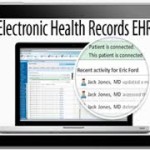Lately there have been a number of changes in the healthcare industry that are targeted to provide quality healthcare to patients. Adapting to these changes is critical to the viability and profitability of your medical practice.
1.
Implement Electronic Health Record (EHR) system
If you haven’t adopted the electronic health record system, then now is the final call to do it. The government has announced July 1, 2014 deadline for physicians to implement EHR system or they will penalized beginning in 2015.
Through implementation of electronic health records, physicians will be able to have complete access to comprehensive and accurate information, which will enable them to provide improved and quality medical care to patients. According to government statistics, providers using the EHR system have reported:
•94% physicians said with EHR patient records are available every time
•88% report EHR benefits clinical procedures of practice
•75% providers reported improved patient care










